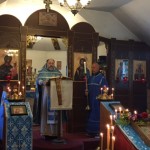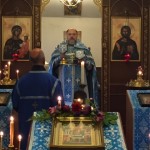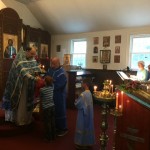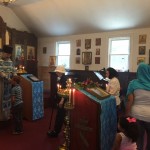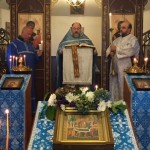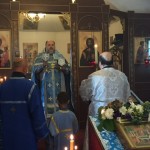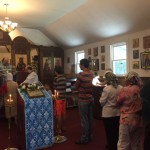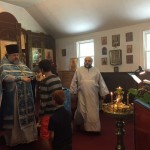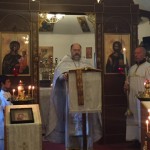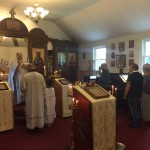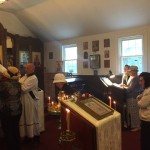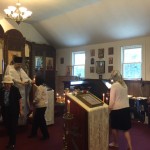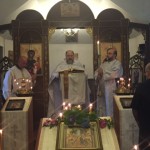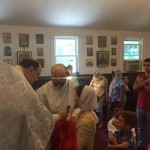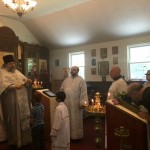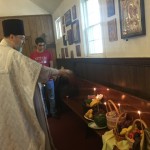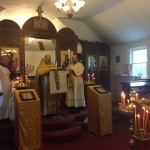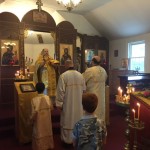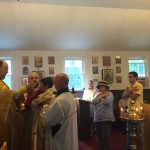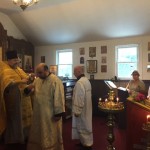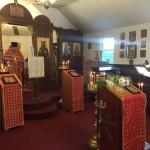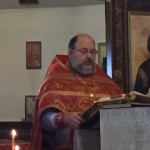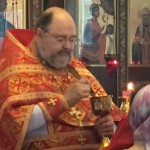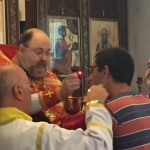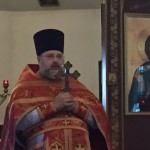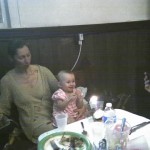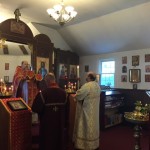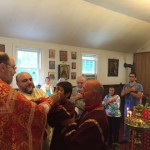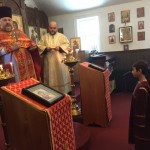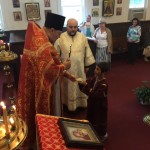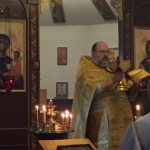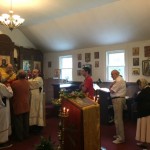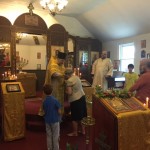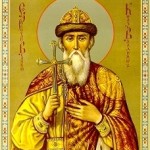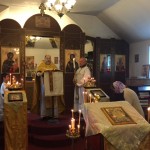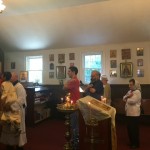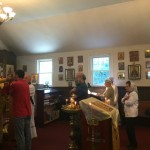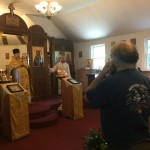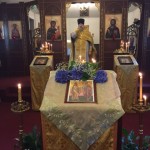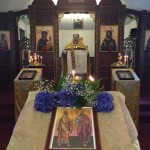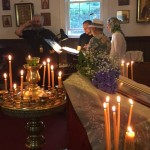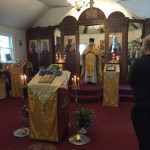On August 30, on the 13th Sunday after Pentecost, we had a nice celebration at our parish. St. George’s Rector, Archpriest Igor Tarasov served the Divine Liturgy. Following the Scripture lessons he preached a homily:
“Today’s Gospel is telling us the parable of the vineyard. We heard that story of the owner who built it and was sending his servants to get the fruits in due time. And we heard how the tenants treated them, them and even the owner’s son.”
“In this parable, the vineyard is Israel. The owner is God. Israel is hedged around with natural borders. The wine-press is the altar, the tower is the Temple. The tenants are the Jews. The servants are those sent by God, the prophets and holy ones who reminded the Jews that Israel was not theirs but God’s. But what did the Jews do? They beat and stoned and killed first the servants and then the heir, the Son of God. Why? Because they wanted everything for themselves. And so they ceased to be God’s people, they ceased to be Israel and were cast out of their land and scattered over all the face of the earth. Israel was given to others: the New Israel, the Church, was born.”
“This is why, we should realize that this parable is also addressed today to us, Orthodox of the New Israel. The vineyard is the planet where we Orthodox Christians live. It is hedged around by the presence of the Church. The wine-press is the altar. And the tower is the Church. And the servants are the Saints or the servants of the Church. And we Orthodox should ask ourselves what we have done with God’s Saints who have been sent for our repentance.”
“In our days the Church of Christ is persecuted in the world. Her voice is hushed.This is done to the servants of God. This is why some day He will send His Son and that will be the Second Coming, the Coming of the Heir.”
“This parable is also addressed to each of us today in a personal sense. The vineyard is our own soul. It is hedged around with prayer, our guardian Angel, our patron Saint. The wine-press is where we offer ourselves to Christ. The tower is our inner church where we pray to God. We are tenants of our God-created souls. The servants sent to us are all those occasions when God speaks to us. He speaks to us in prayer, He speaks to us through the word of His Scriptures, He speaks to us through every opportunity, every encounter, every event that comes into our lives. He speaks to us through the presence of His Church in the world.”
“And how do we react? Do we reject everything sent to us, everything allowed to us, as a chance to do better, to make good our weaknesses? Do we fail to see God? Do we ignore the Church? If so, then we too beat and stone and kill the servants of God. We are warned: the Heir is coming.
At the end of the parable of the vineyard, Christ says: ‘The stone that the builders rejected has become the head of the corner, and it is marvelous in our eyes’. The stone rejected is of course the Rock of Faith, Christ Himself, for He was rejected and crucified. And yet He became the head of the corner and it is marvelous in our eyes. Let us too be rocks of faith then, and though the world will reject us, we too shall become heads of the corner, and it will be marvelous in the eyes of God and men. Glory to Thee, O God, glory to Thee!”
Following the liturgical services the Rector and parishioners enjoyed delicious meals and a nice company at the trapeza table during the coffee hour.

